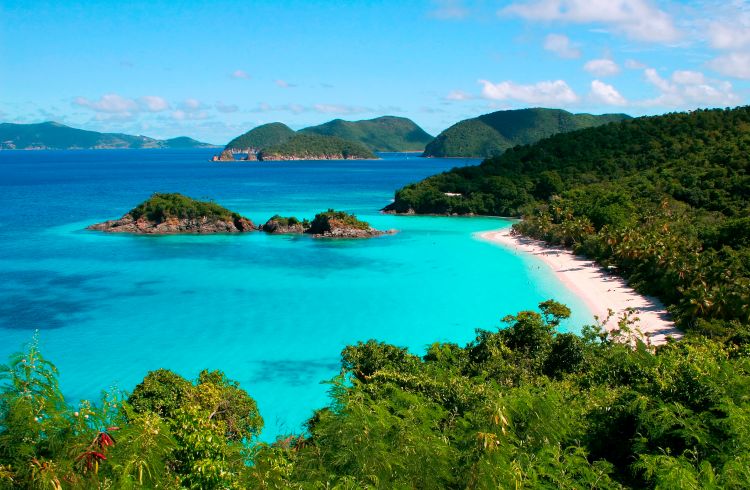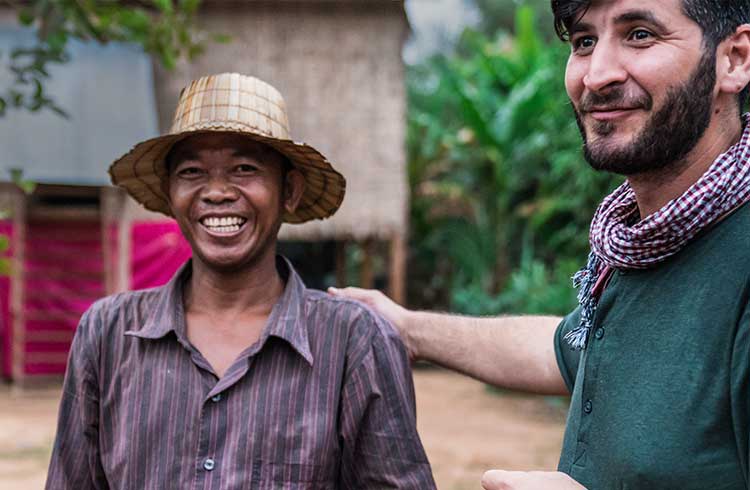US Virgin Islands Travel Alerts and Warnings
Coronavirus (COVID-19) and travel: The situation around the world is changing dramatically. Various governments have changed their travel warnings to restrict travel during this time. To understand how this may impact cover under your policy, please go to our FAQs and select your country of residence.
For the latest travel warnings and alerts around the world, read about lockdowns and border restrictions.
What are the issues affecting travelers in US Virgin Islands? Read the latest travel warnings and alerts.
Shares
 Photo © Getty Images/Steven Heap/Eye Em
Photo © Getty Images/Steven Heap/Eye Em
COVID-19 travel restrictions in the US Virgin Islands – updated 26 April, 2021
Borders are open for travel, but subject to the same restrictions as the mainland United States (foreign nationals who have visited China, Iran, the Schengen Area, the United Kingdom, Republic of Ireland, Brazil, or South Africa in the last 14 days will not be admitted).
All travelers must complete the Travel Screening Portal within 5 days of travel. Travelers who fail to do so may be denied boarding. Upon arrival you must produce your completed form, and any required test results.
All passengers age 5 or older traveling by sea or air, including those in transit, must submit evidence of one of the following:
- A COVID-19 molecular (e.g., RT-PCR, viral or nucleic acid amplification) test from a nasal or throat or saliva swab sample taken and NEGATIVE result received (both within five days of commencement of travel to the Territory)
- a COVID-19 antigen (rapid) test from a nasal or throat swab sample taken and NEGATIVE result received (both within five days of commencement of travel to the Territory)
- or, a COVID-19 antibody (rapid) finger stick or blood draw test taken and POSITIVE result received (both within four months of commencement of travel to the Territory).
Evidence of COVID-19 vaccination does not supersede the COVID-19 testing requirement.
Travelers are subject to COVID-19 health screening protocols, including a temperature scan, and may be subject to enhanced screening including COVID-19 testing or retesting upon arrival. Check here for the latest information.
Because the US Virgin Islands is a US territory, a negative test result is not required to travel or return to the US mainland from the US Virgin Islands.
Travel to the US Virgin Islands does not require a passport from US citizens arriving from Puerto Rico or the US mainland. Entry requirements for non-US citizens are the same as for entering the United States from any foreign destination. Upon departure, a passport is required for all but US citizens.
Previous travel alerts for the US Virgin Islands
Hurricane Maria - 18 September, 2017
A 3rd hurricane in 2 weeks is bearing down on the US Virgin Islands. Hurricane Maria is predicted to follow a similar path to Irma and sweep across the northern Caribbean with the US Virgin islands directly in its path. Presently a category 1 hurricane, Maria is expected to develop into a major hurricane as it approaches and will strike the region sometime late on Tuesday 19th or early on Wednesday the 20th.
As well as destructive winds Maria is expected to dump a foot-and-a-half of rain leading to localised severe flooding.
How to Survive a Hurricane
The absolutely best way to survive a hurricane is to avoid one. Get away from it, but if you make the decision to leave make that decision early. Do not leave it until the last minute because you may find yourself caught without proper shelter.
If you decide to stay and "ride it out" it is advisable to get to an authorized shelter. The locations of these will be broadcast, or locals will know where they are. If there is no shelter, prepare to "shelter in place" in an internal room without windows.
Once a "storm watch" has been issued, make sure you are prepared in the event that the watch becomes a "warning."
- Fill the gas tank of your car.
- Check batteries in flashlights and radios.
- Have extra batteries on hand.
- Secure all doors and windows.
- Close shutters or board up the windows.
- Have extra supplies on hand such as non-perishable food, clean drinking water, a half-gallon of water per person/per day (enough for a couple of days), and prescription drugs.
During the storm
- Never go out during the storm. The winds can send flying debris into you causing injury and even death.
- Stay away from windows and doors.
- Keep on the alert for additional storm warnings. Hurricanes are known to spawn tornadoes so be prepared to take cover if one should strike.
- While the storm is in progress avoid using electrical appliances.
- Stay off the telephone.
- All pets should be secure in carriers. The storm will be a frightening experience for them as well, and they could injure themselves or you if they panic.
- Do not light candles or lanterns; they could get blown over causing a fire.
- The eye of the storm passing over could make you think the storm is over when the worst is still yet to come. Only use this calm in an extreme emergency to make critical repairs.
- Only after an official "all clear" has been issued is it safe to come out.
After the storm
- Beware of downed power lines and gas leaks.
- Stay away from heavily damaged areas.
- Listen to your radio for instructions.
Hurricane Irma - 7 September, 2017
Category 5 Hurricane Irma made landfall in the US Virgin Islands Wednesday, causing extensive damage. Irma is now headed for Turks and Caicos, the Bahamas, and the US mainland. Keep an eye on local media for the latest updates.
Travel warnings have been issued for Antigua, Barbuda, Anguilla, Montserrat, St. Kitts, and Nevis, Saba, St. Eustatius, and Sint Maarten, British Virgin Islands, U.S. Virgin Islands, Puerto Rico, Vieques, and Culebra, Dominican Republic from Cabo Engano to the northern border with Haiti, Guadeloupe, Southeastern Bahamas and the Turks and Caicos Islands.
The United States has declared states of emergency in the US Virgin Islands, Florida, South Carolina, Georgia and Puerto Rico.
Along with extremely strong winds, Hurricane Irma is likely to create a storm surge of 11 feet or more, with large, breaking waves. Heavy rains could cause life-threating flash floods and mudslides.
Be aware that now this is a named hurricane and emergencies have been declared in several places it may not be possible to purchase travel insurance to cover this event. To discuss your coverage please contact us at World Nomads.
Get a travel insurance quote for US Virgin Islands
You can buy at home or while traveling, and claim online from anywhere in the world. With 150+ adventure activities covered and 24/7 emergency assistance.
Related articles
Simple and flexible travel insurance
You can buy at home or while traveling, and claim online from anywhere in the world. With 150+ adventure activities covered and 24/7 emergency assistance.
Get a quote

No Comments